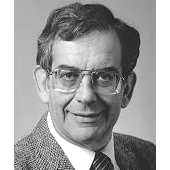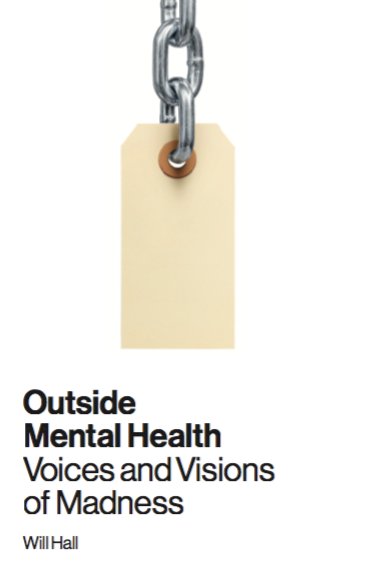Thank you for this thoughtful reply and for the personal story, quite fascinating and I’m glad the show inspired you to write. – Will
Psychotherapy for Schizophrenia | Bert Karon

In schizophrenia really an “incurable illness” — or a state of chronic terror? Are there ways for psychotherapy to reach people in different realities? And can talk therapy offer a humane and empowering approach?
Bert Karon, psychoanalyst since 1955, co-author of the classic textbook Psychotherapy of Schizophrenia, and Professor of Clinical Psychology at Michigan State University, outlines psychoanalysis and discusses how his talking cure helps people diagnosed psychotic and schizophrenic.
http://psychrights.org/Research/Digest/Effective/BKaronTragedyofnoPsychotherapy4Schizophrenia.pdf
http://bit.ly/ZxwwNk
http://bit.ly/11CPtzO
Podcast: Play in new window | Download (Duration: 52:45 — 48.6MB)
Subscribe: RSS
17 comments on “Psychotherapy for Schizophrenia | Bert Karon”
Pingback: Psychotherapy for Schizophrenia: Bert Karon on Madness Radio – Beyond Meds
How come that a show that started out letting survivors talk became a marketing tool for “psychotherapy”? What helped me when I found this programme was to hear people talk who had experienced the same things I had. Without any “solution”. The solution was to hear them talk. Nowadays survivors need at the very least be affiliated with some sort of “program” in order for their voices to be important. While any sort of “therapist” can make HUGE CLAIMS about how wonderful and powerful their “therapy” is. The truth is that psychoanalysis was abandonned by many because people got hurt in it, and that was not due to not-well-enough-trained “therapists”. What “therapy” mostly does is milking people for money that many don’t have to begin with.
The interview is awful and involuntarily honest: A “therapist” tells a “patient” that they feel “does not deserve ‘therapy'” that they “do not hate them”. What, then, is the definition of “hating” if not feeling someone “does not deserve”? “Therapy” is being around people who professionally lie empathy that they do not actually feel for the most part.
I wonder why survivor voices that don’t come with any “therapy” theory aren’t good enough anymore for madness radio.
Pingback: An ISPS “Online Meeting” with Bertram Karon | ISPS-US Blog
Pingback: Going Deeper Into “Madness” with ISPS: Anticipating the International Dialogue in NYC 2015
I want to have an opportunity to listen to the entire interview but what I heard I thought this guy was fantastic for me psycho therapy absolutely was the answer for the support that allowed me to get off medication or specifically I’m 90% off then after 30 years in about 6 months and hoping to be completely off to support I got from the therapist that I saw after seeing many and finally find a good one was incredible and undeniably what I needed
Will write more
-
hannah fischer says:
Trying to help a friend find someone to help her taper off neuroleptics of 30 years, so your story is encouraging as she thinks she has been on meds too long to come off
Are you able to share which therapist supported you to taper off as its like looking for a needle in a haystack
many thanks
↓
I’m not a doctor in any since of the word. I get something from EVERY interview on Madness radio but find love is enough to help people with mental problems. I’m a 60 year old gay man. I befriended a young man (12 years old) 10 years ago and loved him through his mental problems that stemmed from a rape at 9 years old. His mother was pure nuts and had I not taken time with him (he’s now 21) he wouldn’t be the army soldier he is today. I don’t take credit for his recovery, I just loved him through it. At 12 he introduced me to his brother and friends, all which have developed mental illness through poor family ties. I want to rent a house where I can take them all in (3 young men)but I’m on housing and not allowed to take them in. I plan to drop my housing at some point so the government can’t tell me what to do. It’s a shame the government has so much control over me. I have AIDS, not a mental disorder and love these young men. All three have been put on drugs, only one is doing good. Pray for me as I take on the government and mental health control freaks. I enjoyed listening to this interview, I don’t hate all doctors. God bless you Madness radio. You are my newly found friend in this crazy world that unintentionally is hurting my boys. I love them in their madness and believe me, my little apartment is a crazy house but, a house full of love and respect for those going through mental anguish. I have only one wish, a BIG house so I can take them all in with no government intrusion that keeps our backs to the wall.
-
TarbabyJim says:
PS: The picture (profile) is Melanie Safka. Her music brings peace to my house.
↓
this resonated with me on such a personal level. as someone with a lived experience of psychosis a “diagnosis”( I use the term loosely as its in my opinion labelling and stigmatizing) but with a “diagnosis of schizoaffective disorder” who is now unmediated and well into recovery now working in the MH sector I found this to be a brilliant interview that I have shared with colleague’s and friends so thankyou
Pingback: Madness Radio Interview with Clyde Dee | Clyde Dee
Thank you so much for this amazing interview with the unique Bert Karon. He is so inspirational, so understanding, compassionate, brilliant, intuitive. I think there is no one like him and his passing is a huge loss. Thanks so much Will for recording this for posterity. Have not stopped telling everyone about Bert since hearing him talk. If only more would practice like him the world would be a better place. Who is perpetuating his legacy?





























 Creative Commons 2.5 copyright
Creative Commons 2.5 copyright
This is from a listener who asked me to post it to the show:
Hello Will and staff,
I listened to Dr. Karon and had such a flood of reflections that I needed to write something outside the box. My family are decedents of people who immigrated to America during Freud’s lifetime from Germany and Austria. My mother’s parents came from villages just south of Vienna. I am the first generation to grow up in a large metropolitan area and speak English as my first language (my parents came from a German speaking village). I developed symptoms of anxiety disorders just as Freud described when I was 10 years old in 1960. My father said that I should be exorcised and I tried to hide my condition from my parents. This was difficult because I had gone from first in my school class to the bottom. When I was 16, I gathered enough courage to speak to a M.D. about my problems. He told my parents that I should see a psychiatrist and I did. I was interviewed for about 5 minutes and the Doctor asked me two questions: how do you feel about your mother? how do you feel about your father? My parents were like the parents described by Alice Miller and I become flustered and muttered something, probably incomprehensible, and the Dr. diagnosed me as schizophrenic and gave me a prescription for Prolixen. This was a public clinic and all of the psychologists and psychiatrists at the time were reading Freud. I did not know who he was but I thought that maybe they understood what they were doing. They did not. I was referred to their Day Hospital for intensive group therapy. The director of the D.H. had a complete set of Feud in his office. He had also taken training from members of Eric Berne’s TA group. Within 4 months these people drove me into a psychotic depression. I don’t know how I survived. I lived a very limited life and decided in the late 1970s to try therapy again. This time I decided to read up on the subject, I just had not caught on to therapy the first time. I read Freud, and many other psychoanalysts as well as the cognitive and behavioral therapists. None of the therapists at this time read Freud anymore. They were all into the “here and now,” and did not want to hear about childhood trauma.
I also overcame my fear of meds and tried SSRIs. These did not help. I tried therapy again in the 1980s, and again in the 1990s. Then I went to see an hypnotist(with a PHD in Clinical Psychology) to see if he could deprogram me from the delusion that therapy could help me. I never wanted to hear about Freud or any of his descendants again.
In 2008 I moved to Germany and my old neighbor’s son committed suicide. He was diagnosed as having ADHD but by the time he was 20 he developed Bipolar Disorder. The father was a MD and Medical Administrator in the U.S.Army and the son was living in their house over a thousand miles away from his parents. They did not know that he was in such a fragile condition. After the son’s death, The father started asking me a lot of questions which I could not answer and I went back on a search for some answerers.
Now I must say that Dr. Karon has the most positive approach to Freud that I have ever heard. And I must agree with him on what he says about listening to his patients. He also points out something that is absolutely true: a non Freudian Therapy would be something like a non Newtonian Physics. All of the Cognitive, Behavioral, and CBT approaches that came out in the second half of the 20th Century are offshoots of Freud’s Therapy. Aaron Beck, Albert Ellis, Manuel Zane, and Joseph Wolpe were Freudian Analysts who took points made by Freud and expanded on them (“There comes a time when the patient must get up off the couch and directly face his fears” Freud). They then threw out Freud’s other ideas.
The problem was that their therapies were no more scientific than Freud’s search for the Oedipal Complex and in many cases, just as ineffective.
When I moved to Germany, I decided to re- read Freud in the original. I had read a great deal of him in English so, I thought, this would not be too difficult. Wrong. I kept running into Freud’s Oedipal Complex. I had skimmed over that part when I read him in English. I then re-read my favorite biography of Freud: Darkness in the Midst of Vision by Louis Breger.
Freud was very sexually repressed and very jealous of his colleagues but, he harbored no murderous hatred toward his father and he had no erotic desires toward his mother. Freud’s father was a kindly man and his mother was rather cold and demanding of Sigmund. In other words, Freud had some related issues with sexual identity and colleague rivalry, but he had no real Oedipal Complex. What was that all about?
Freud suffered from a phobia of train and ship travel. I know from my own 19th Century symptoms that an OCD sufferer will try to control one problem (travel phobia) by trying to control another personal problem(sexual repression and jealousy).This, like psychotherapy, works until it stops working. It stopped working for Freud when he tried to board the ship for America in 1909 to lecture at Clark University. Freud fainted and had to be carried on board. Freud had written to Fliess that he had cured himself of his Travel Phobia through his self-analysis. He was never cured according to Breger.
Another point made by Karon: most people have never read Freud; that is absolutely true. If you have not read Freud, I would recommend starting with The Introductory Lectures and The Rat Man Case. Then read Breger.
I referred my friend the doctor to your website and he has referred it to many other professionals. I find Madness Radio abnormally sane.
Many Thanks,
// and a follow-up//
Will,
Here is a good intro to Breger’s Freud Biography. Bert Karon’s assertion that one must understand Freud to understand all psychotherapy becomes clearer in this video. I wrote to Lou Breger about my theory that Freud suffered from strong OCD tendencies and he wrote back, saying that his wife was very ill and that he did not have time to address the issues that I brought up. I wrote also to Jeff Masson, suggesting that Freud’s therapy was based on self-deception but, the symptoms that he described were real. He declined to respond.
↓